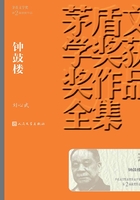However, from the point of view of capitalist production, the semblance of a special problem does indeed exist. In the present case it is the capitalist who appears as the point of departure, who throws money into circulation. The money which the labourer expends for the payment of his means of subsistence existed previously as the money-form of the variable capital and was therefore thrown originally into circulation by the capitalist as a means of buying or paying for the labour-power. The capitalist furthermore throws into circulation the money which constitutes originally the money-form of his constant, fixed and circulating, capital;he expends it as a means of purchase or payment for instruments of labour and materials of production. But beyond this the capitalist no longer appears as the starting-point of the quantity of money in circulation. Now, there are only two points of departure: the capitalist and the labourer. All third categories of persons must either receive money for their services from these two classes or, to the extent that they receive it without any services in return, they are joint owners of the surplus-value in the form of rent, interest, etc. That the surplus-value does not all stay in the pocket of the industrial capitalist but must be shared by him with other persons, has nothing to do with the present question. The question is how he turns his surplus-value into money, not how the proceeds are later divided.
For out purposes the capitalist may as well still be regarded as the sole owner of the surplus-value. As for the labourer, it has already been said that he is but the secondary, while the capitalist is the primary, starting-point of the money thrown by the labourer into circulation. The money first advanced as variable capital is going through its second circulation when the labourer spends it to pay for means of subsistence.
The capitalist class remains consequently the sole point of departure of the circulation of money. If the need £400 for the payment of means of production and £100 for the payment of labour-power, they throw £500 into circulation. But the surplus-value incorporated in the product, with a rate of surplus-value incorporated in the product, with a rate of surplus-value of 100%, is equal in value to £100.
How can they continually draw £600 out of circulation, when they continually throw only £500 into it? Nothing comes from nothing.
The capitalist class as a whole cannot draw out of circulation what was not previously thrown into it.
We disregard here the fact that the sum of £400 may suffice, when turned over ten times, to circulate means of production valued at £4,000 and labour-power valued at £1,000, and that the other £100 may likewise suffice for the circulation of £1,000 worth of surplus-value. The ratio of the sum of money to the value of commodities circulated by it is immaterial here. The problem remains the same. Unless the same pieces of money circulate several times, a capital of £5,000must be thrown into circulation, and £1,000 is required to convert the surplus-value into money. The question is where this money comes from, whether it is £1,000 or £100. In any event it is in excess of the money-capital thrown into the circulation.
Indeed, paradoxical as it may appear at first sight, it is the capitalist class itself that throws the money into circulation which serves for the realisation of the surplus-value incorporated in the commodities.
But, nota bene , it does not throw it into circulation as advanced money, hence not as capital. It spends it as a means of purchase for its individual consumption. The money is not therefore advanced by the capitalist class, although it is the point of departure of its circulation.
Let us take some individual capitalist who is starting in business, a farmer for instance. During the first year, he advances a money-capital of, say, £5,000, paying £4,000 for means of production, and £1,000 for labour-power. Let the rate of surplus-value be 100%, the amount of surplus-value appropriated by him £1,000. The above £5,000comprise all the money he advances as money-capital. But the man must also live, and he does not take in any money until the end of the year. Take it that his consumption amounts to £1,000. These he must have in his possession. He may say that he has to advance himself these £1,000during the first year. But this advance, which here has only a subjective meaning, denotes nothing else but that he must pay for his individual consumption during the first year out of his own pocket instead of defraying it out of the gratuitous production of his labourers. He does not advance this money as capital. He spends it, pays it out for an equivalent in means of subsistence which he consumes. This value has been spent by him in money, thrown into circulation and withdrawn from it in the form of commodity-values.
These commodity-values he has consumed. He has thus ceased to bear any relation to their value. The money with which he paid for this value exists now as an element of the circulating money. But he has withdrawn the value of this money from circulation in the form of products; and this value is now destroyed together with the products in which it existed. It's all gone. But at the end of the year he throws commodities worth £6,000into circulation and sells them. By this means he recovers: 1) his advanced money-capital of £5,000; 2) the realised surplus-value of £1,000.















